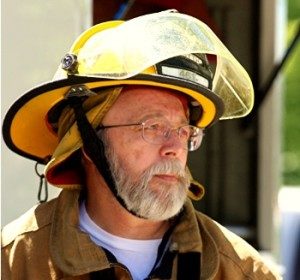Professional Experience
I am a semi-retired IT professional with over 30 years of experience, mostly in the banking, IT services and employee services industries. I have worked in almost every aspect of IT – from loading paper into printers to senior management. Early in my career I spent all my time working with mainframe computers, but when personal computers became available to the public, I saw how they could complement the larger machines. I purchased my first PC in 1986, experimenting with the new technology and discovering how the PC could improve the end user experience through an individual’s ability to customize what he/she sees on the screen, improving the end user experience. Now that I have experience Mainframe, Mid-range, PC and now mobile computing, I find it interesting that each cycle of technology has evolved in much the same way, experiencing the same maturation pains and providing business with even more value with every cycle.
In 2000 I started an ITIL journey with my company. It took us 3 years to complete the project. My newly-formed Capacity Management team was the first discipline to be implemented. Because of my team’s success, I was asked to assist the other IT teams as they worked to adopt the new processes and procedures. Going into the project I was skeptical that it would work for our organization, but the results proved me wrong, delivering astounding results. The savings derived from the project more than paid for the cost of the project. The best practices framework made me a believer.
I retired from a large employee services company in 2004. I ran out of projects in the first couple months of retirement, so chose to pursue a writing career. I became interested in writing in college, but life always seemed to get in the way until now.
I have been actively writing grant applications, white papers and trade magazine articles for about 8 years. I recently completed a book on IT Capacity Management which is in the process of being published. I am also delving into the world of fiction writing. Although there are many differences between fiction and non-fiction, spinning a story, whether fact-based for marketing materials or imagination-based for short stories and novels, has many of the same structure, theme, and word use.
Prior to working in the IT field, I worked as a department manager for large retail chain, managed a truck stop near the Mexican border, and managed a blueprint company.
Public Service experience
Firefighter – I have been both a paid full-time and volunteer firefighter. Those times were some of the most satisfying work of my life. Unfortunately age prevents me from continuing with this avocation.
Mayor – Soon after retirement, we moved to the Ozarks. I had the time to give back to the community so I ran for alderman and won. A year later, I was unhappy with direction of the city so ran for mayor and won.
During my term as mayor, I established an Enhanced Enterprise Zone to attract good paying jobs to our depressed area. Using my grant writing skills my city was awarded over $300K in grants over a two year period. The grants helped us modernize our fire department, reducing our ISO fire experience rating from a 7 to a 4. That accomplishment reduced fire insurance premiums substantially for residential and commercial properties. The grants also helped us modernize the police department, providing more crime scene analysis capabilities and in-car laptops with GPS and on-line law enforcement query capabilities.
I used my IT skills to upgrade the city’s computer system from Windows 98 SE to Windows 7. When we were done, citizens had better access to data, fewer mistakes and were able to pay bills remotely using credit/debit cards or online bill pay. Forms can now be downloaded for a variety of permits/licenses and reservations can be made online for our city-owned campground.
Chairman, Missouri Region D Regional Homeland Security Oversight Committee (RHSOC) – I was elected to a 1-year term as chairman of this organization. The group was comprised of a large number of representatives of public safety and public facing organizations. Each discipline, such as Fire, Police, Sheriff, and County Commissioner had a vote. Each year, members would make recommendations as to how the Department of Homeland Security funding should be spent to put in place assets to protect lives and property. Votes were then taken to allocate the funding, subject to State and Federal DHS approval. All the work this organization did on behalf of the citizens of Southwest Missouri paid off when most of the assets were available to support the response to the devastating Joplin tornado.